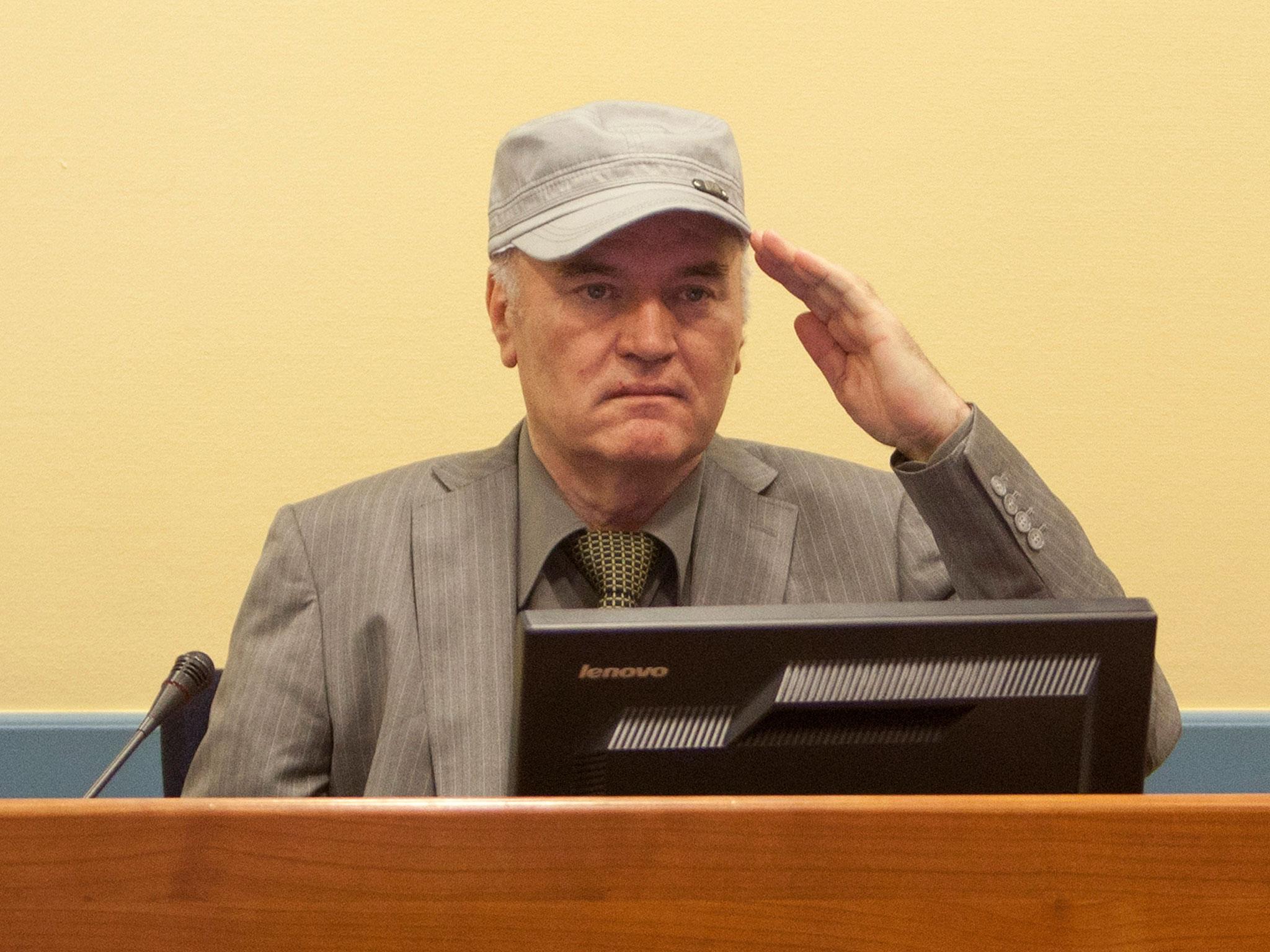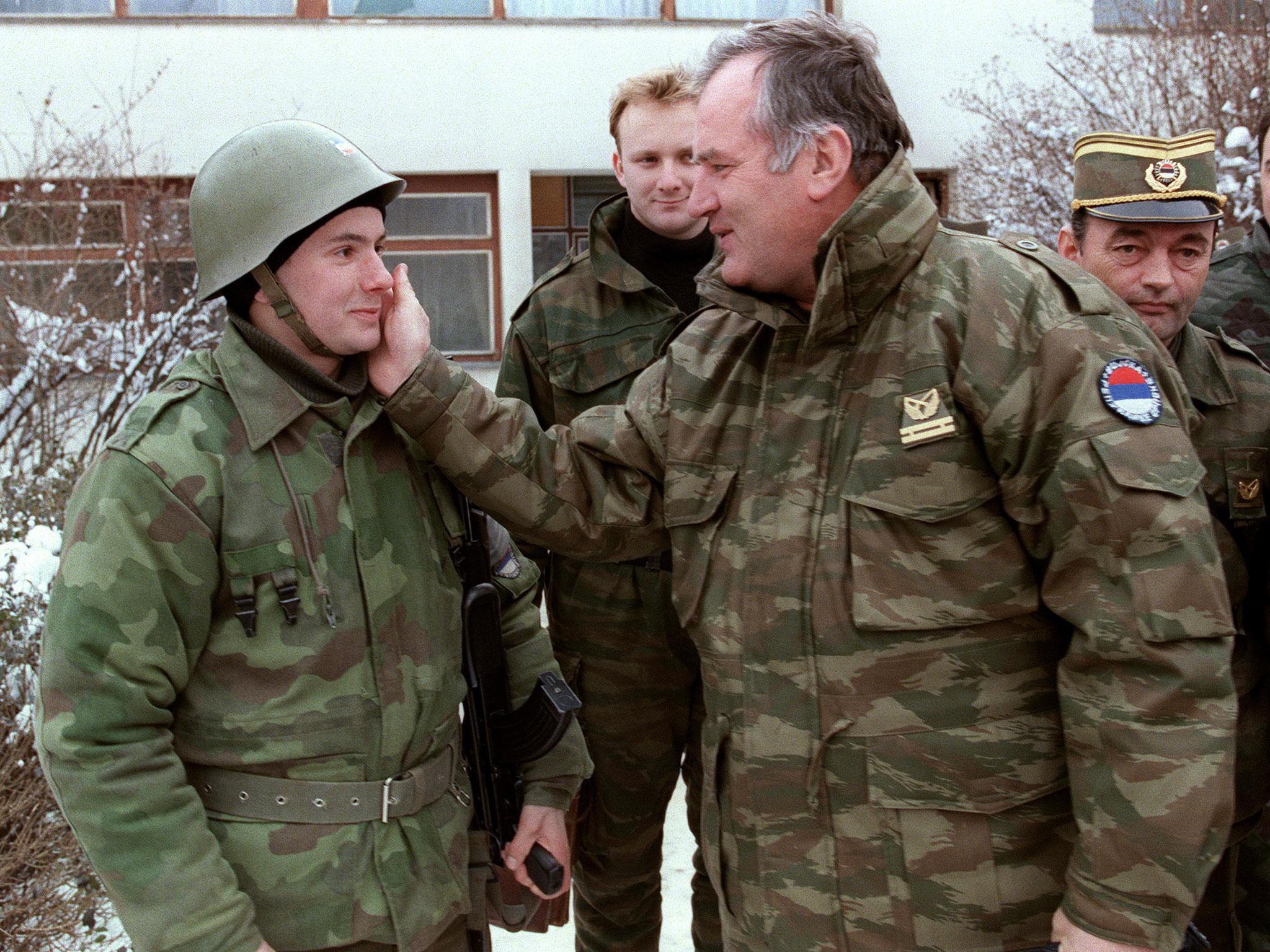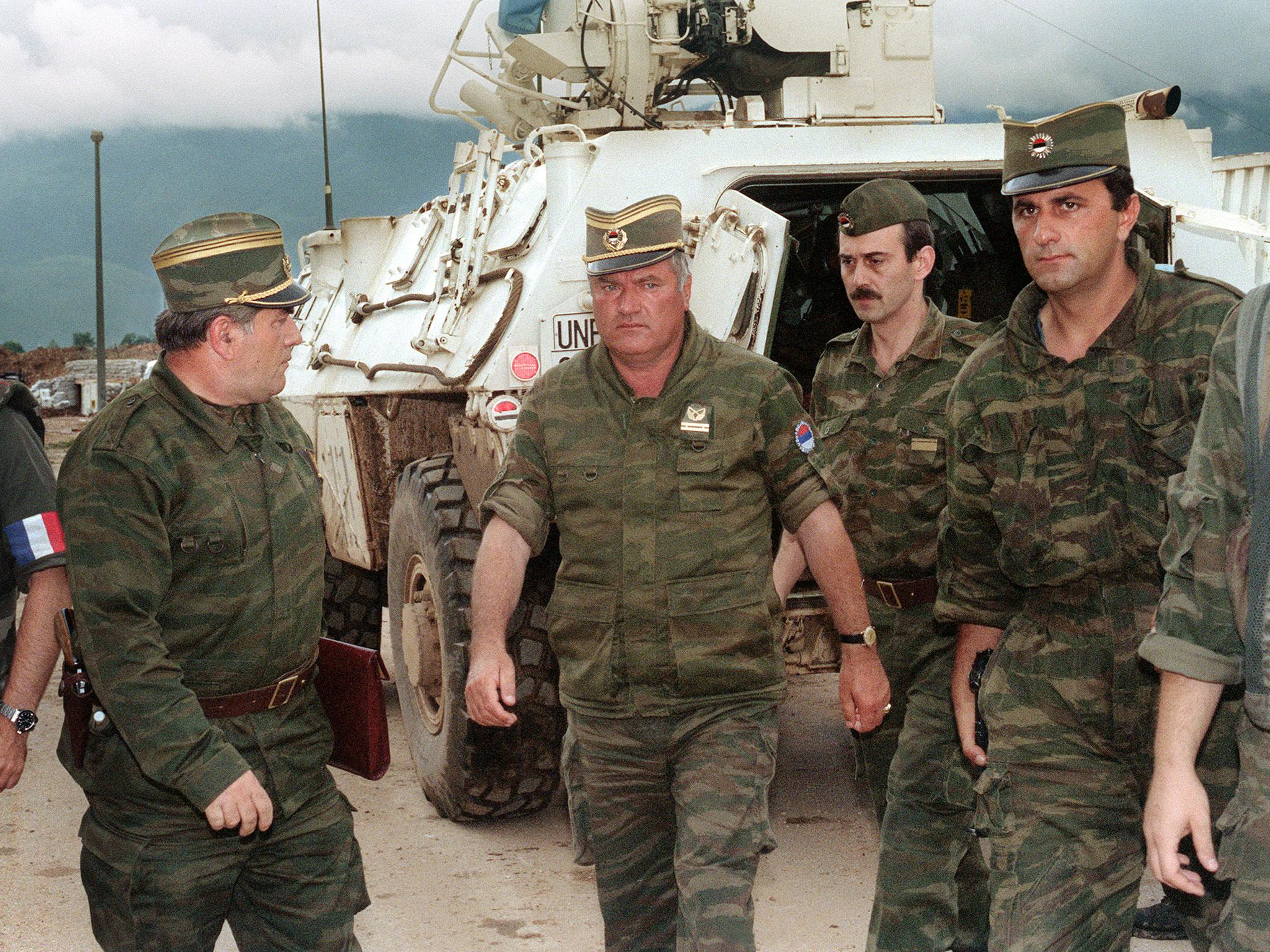Ratko Mladic: Who is the 'Butcher of Bosnia' and what has the former Serb general been charged with?
UN tribunal says 74-year-old 'significantly contributed' to genocide in Srebrenica and 'personally directed' bombardment of Sarajevo

Your support helps us to tell the story
From reproductive rights to climate change to Big Tech, The Independent is on the ground when the story is developing. Whether it's investigating the financials of Elon Musk's pro-Trump PAC or producing our latest documentary, 'The A Word', which shines a light on the American women fighting for reproductive rights, we know how important it is to parse out the facts from the messaging.
At such a critical moment in US history, we need reporters on the ground. Your donation allows us to keep sending journalists to speak to both sides of the story.
The Independent is trusted by Americans across the entire political spectrum. And unlike many other quality news outlets, we choose not to lock Americans out of our reporting and analysis with paywalls. We believe quality journalism should be available to everyone, paid for by those who can afford it.
Your support makes all the difference.Two decades ago, Ratko Mladic was seen as the brash general leading nationalist Bosnian Serbs towards a seemingly sweeping victory in Bosnia's war. Now, he was reduced to an ailing old man trying in vain to delay a United Nations special court from finding him guilty of genocide and crimes against humanity.
The International Criminal Tribunal for the Former Yugoslavia (ICTY) convicted Mladic, 74, of crimes it labelled as some of the "most heinous" in human history, in one of the highest profile war crimes cases since the post-World War Two Nuremberg trials of Germany's Nazi leadership.
Radovan Karadzic, political leader of Bosnia's Serbs in the 1992-95 war, and Serbian President Slobodan Milosevic, who armed and funded Bosnian Serb forces, were tried on the same charges. The ICTY convicted Karadzic in 2016 and jailed him for 40 years. Milosevic died in his cell in 2006 before his trial ended.
Who is the so-called 'Butcher of Bosnia'?
"I am General Ratko Mladic. The whole world knows who I am," Mladic told a pre-trial hearing in 2011. "I am here defending my country and people, not Ratko Mladic."
The former general was charged with genocide for the slaughter of 8,000 unarmed Bosnian Muslim men and boys rounded up in the town of Srebrenica, and his forces' 43-month-long siege of Sarajevo in which thousands of civilians were killed by artillery, mortar, tank and sniper fire from the rugged hills ringing the capital.
When Bosnia's Serbs rose up in response to a referendum for independence by Muslims and Croats, Mladic took over Belgrade's forces in Bosnia which swiftly overran 70 percent of the country with a combination of daring, ruthlessness and brutality.
Serb paramilitaries entered the conflict with a campaign of murder, rape, mutilation and expulsion mainly against Bosnian Muslims.
Dozens of towns were besieged with heavy weapons and villages were burned down as 22,000 UN peacekeeping troops stood by more or less helplessly, with orders not to take sides.
What did he do?

Mladic had a cameraman film the blitz of the Muslim enclave of Srebrenica, showing him bronzed and fit at 53, extolling his "lads" and haranguing hapless Dutch UN peacekeepers who took his soldier's word that the inhabitants would be safe.
Instead, 8,000 of them were systematically executed in a massacre that took several days in July 1995.
TV footage showed Mladic asserting he had "liberated" Srebrenica and gifted it to Serbs as revenge against "Turks" who ruled the region when it was part of the Ottoman Empire.
Muslim men and boys were separated from women, stripped of identification then shot. The dead were bulldozed into mass graves.
Their remains were later dug up and hauled away in trucks to be better hidden from the world in more remote mass graves.
Over 6,900 victims have since been identified by DNA tests.

The massacre was the grim culmination of a 3-1/2-year conflict in which the beefy general had pounded Sarajevo daily with the entire Bosnian Serb arsenal, killing over 11,000 people, until local sports fields were overflowing with graves.
His goal, ICTY prosecutors said, was ethnic cleansing: the forcible extermination or expulsion of Muslims, Croats and other non-Serbs to clear Bosnian lands for a "Greater Serbia".
Prosecutors said it was a conspiracy in which Mladic and Karadzic were aided, armed and abetted by Milosevic.
Only a combination of Western pressure and covert American arms and training for Croats and Muslims turned the tide in 1995 against Mladic's army, ultimately depriving it of equipment and fuel supplies from Serbia. NATO air strikes did the rest.
What has The Hague found him guilty of?
A three-judge panel at the court, formally known as the International Criminal Tribunal for the Former Yugoslavia, convicted Mladic of 10 of 11 counts in a dramatic climax to a groundbreaking effort to seek justice for the wars in the former multi-ethnic federation.
When the time finally came on Wednesday to face judgement, Mladic delayed proceedings, first by taking a bathroom break and undergoing a blood pressure test at his request, then screaming "This is all lies, you are all liars" on returning to the court.
He was hustled out of the chamber, and the tribunal announced he had been convicted of genocide and crimes against humanity.
In its summary, the tribunal found Mladic "significantly contributed" to genocide committed in Srebrenica with the goal of destroying its Muslim population, "personally directed" the long bombardment of Sarajevo and was part of a "joint criminal enterprise" intending to purge Muslims and Croats from Bosnia.
Mladic had pleaded not guilty to all charges. His legal team said he would appeal against the verdict.
"I am a very old man... and I am not important," he told the tribunal. "It matters what kind of legacy I will leave behind, among my people."
Additional reporting by agencies
Join our commenting forum
Join thought-provoking conversations, follow other Independent readers and see their replies
Comments